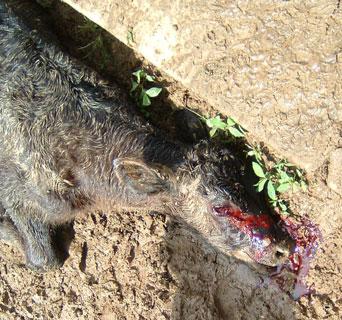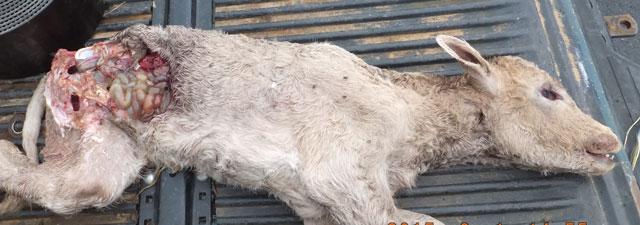Vulture Depredation
Vulture Information:
Click on the following links to learn more:

- If the depredation is actively occurring, snap some quick photos and then attempt to scare the birds away.
- In all other situations you also want to take pictures of the suspected vulture-depredated livestock as soon as possible after you find it.
- Make sure you take pictures of the entire animal but focus on the face and rear parts of the animal as seen in images Figure 4a, b, c. The correct documentation is important as it may be difficult to determine whether the black vultures have killed livestock they are feeding on or are feeding on animals that were already dead. You then want to remove the animal from the area to ensure other vultures or wildlife species do not continue to feed on the carcass.

Figure 4b - It is EXTREMELY important that you get these pictures taken and remove the carcass as soon as possible to help attract more animals to the area.
- Contact the Kentucky Department of Fish and Wildlife Resources (KDFWR) and make sure you can send the pictures via email or regular mail to the KDFWR Biologist assigned to black vulture issues (Contact info at end of document) to confirm the cause of death. It may be possible to be reimbursed via the Livestock Indemnity Program if identification of the cause of death is possible and loss are severe. Contact your local extension agent regarding this reimbursement process.

Vultures, both black and turkey provide an important ecological service in consuming carrion which reduces the risk of diseases from spreading in the environment. Vultures, as with all other wildlife, will take advantage of resources available to them, unfortunately this can cause issues when it involves human dwellings and in some cases livestock operations. Fortunately, vultures respond well to relatively simple methods that harass or discourage them from congregating or feeding in critical areas.
